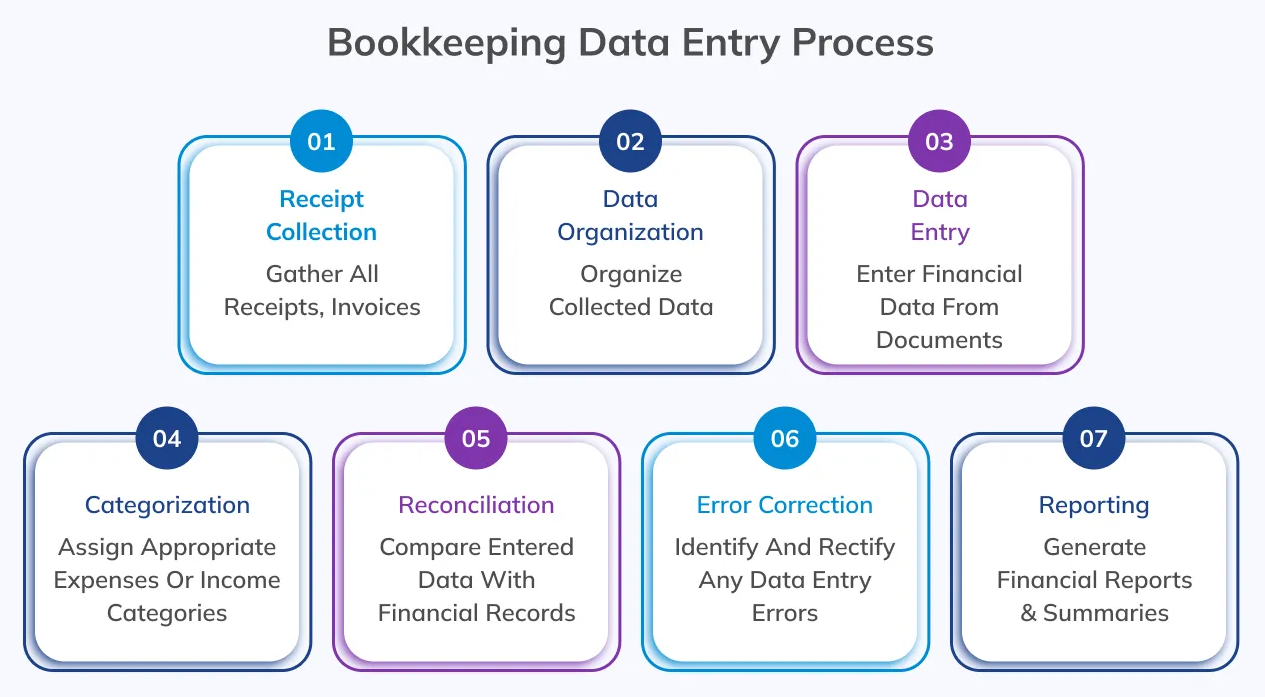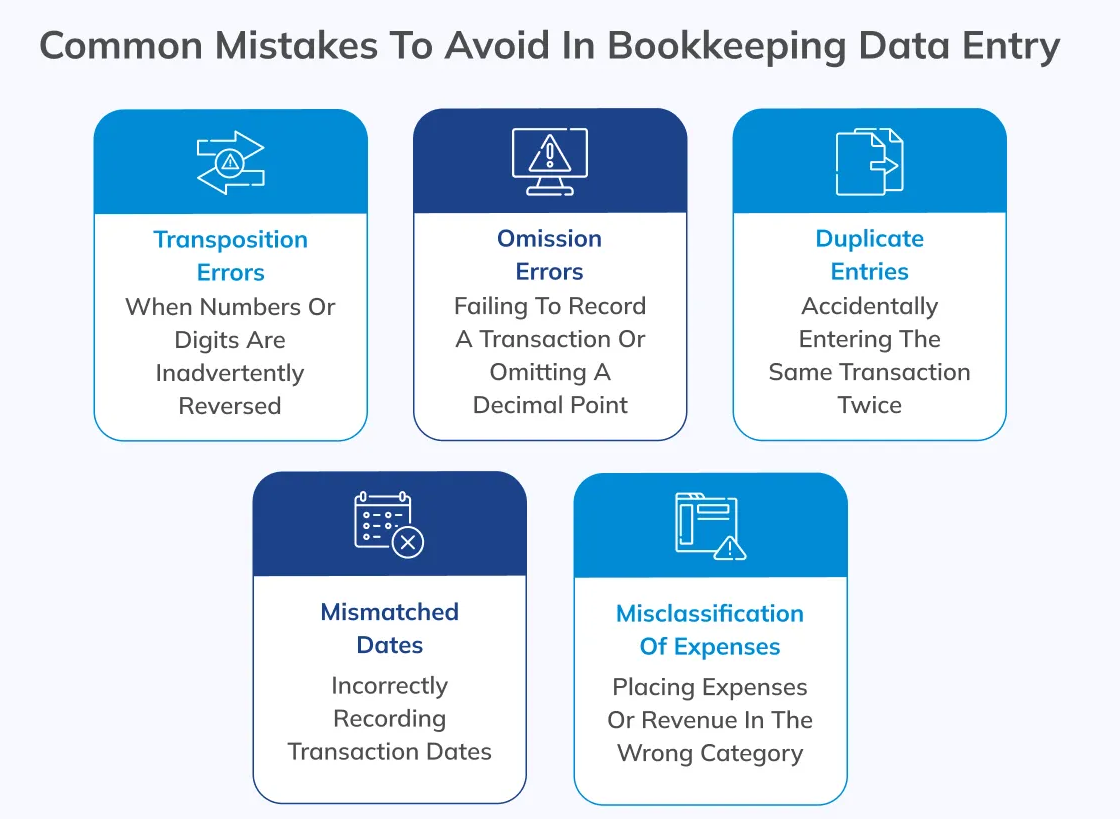Accurate and efficient bookkeeping data entry is the foundation for sound financial management in any business. From standardizing procedures to leveraging advanced software, there are several effective strategies that organizations can employ to streamline their data entry processes and maintain the integrity of their financial records. Let’s explore seven key approaches that can help businesses excel in this critical domain.
Standardize Data Entry Procedures: Establishing consistent guidelines and formats for recording financial transactions ensures accuracy, minimizes errors, and facilitates easier data analysis and reporting. Standardization enables seamless collaboration and accountability, regardless of who is responsible for data entry.

Embrace Regular Reconciliation: Regularly reconciling financial records, such as bank statements and account balances, helps detect discrepancies, identify potential issues, and maintain the overall integrity of the data. This proactive approach empowers businesses to make informed decisions based on reliable financial information.
Leverage Accounting Software: Investing in robust accounting software solutions can significantly enhance the efficiency and accuracy of bookkeeping data entry. These tools often incorporate automated validation checks and streamlined data management features, reducing the risk of human errors.
Monitor Data Entry Processes: Closely overseeing the data entry activities, verifying the completeness and correctness of entries, and identifying areas for improvement are essential for maintaining high-quality financial records. Proactive monitoring enables early detection and correction of errors, ensuring the reliability of the data.
Implement Data Validation Checks: Integrating automated validation mechanisms into the accounting system helps ensure the accuracy, completeness, and consistency of financial data at the point of entry. This systematic approach prevents common errors and safeguards the integrity of the records.
Maintain Clean and Organized Records: Implementing a structured filing system and adhering to standardized naming conventions for financial documents and data can significantly enhance the efficiency and transparency of bookkeeping processes. Well-organized records facilitate easier information retrieval, error identification, and overall data management.

Schedule Regular Reviews: Dedicating time to systematically assess the accuracy, completeness, and alignment of financial records with supporting documentation is crucial. These scheduled reviews enable businesses to identify and address issues promptly, evaluate the effectiveness of data entry processes, and make necessary improvements.
As the bookkeeping landscape evolves, embracing technological advancements and staying abreast of emerging best practices will be critical for businesses to maintain a competitive edge. From automation and artificial intelligence to machine learning, the future of bookkeeping data entry is poised for transformative change. By implementing these seven proven strategies, organizations can position themselves for success, streamline their financial management, and make more informed decisions based on reliable data.
